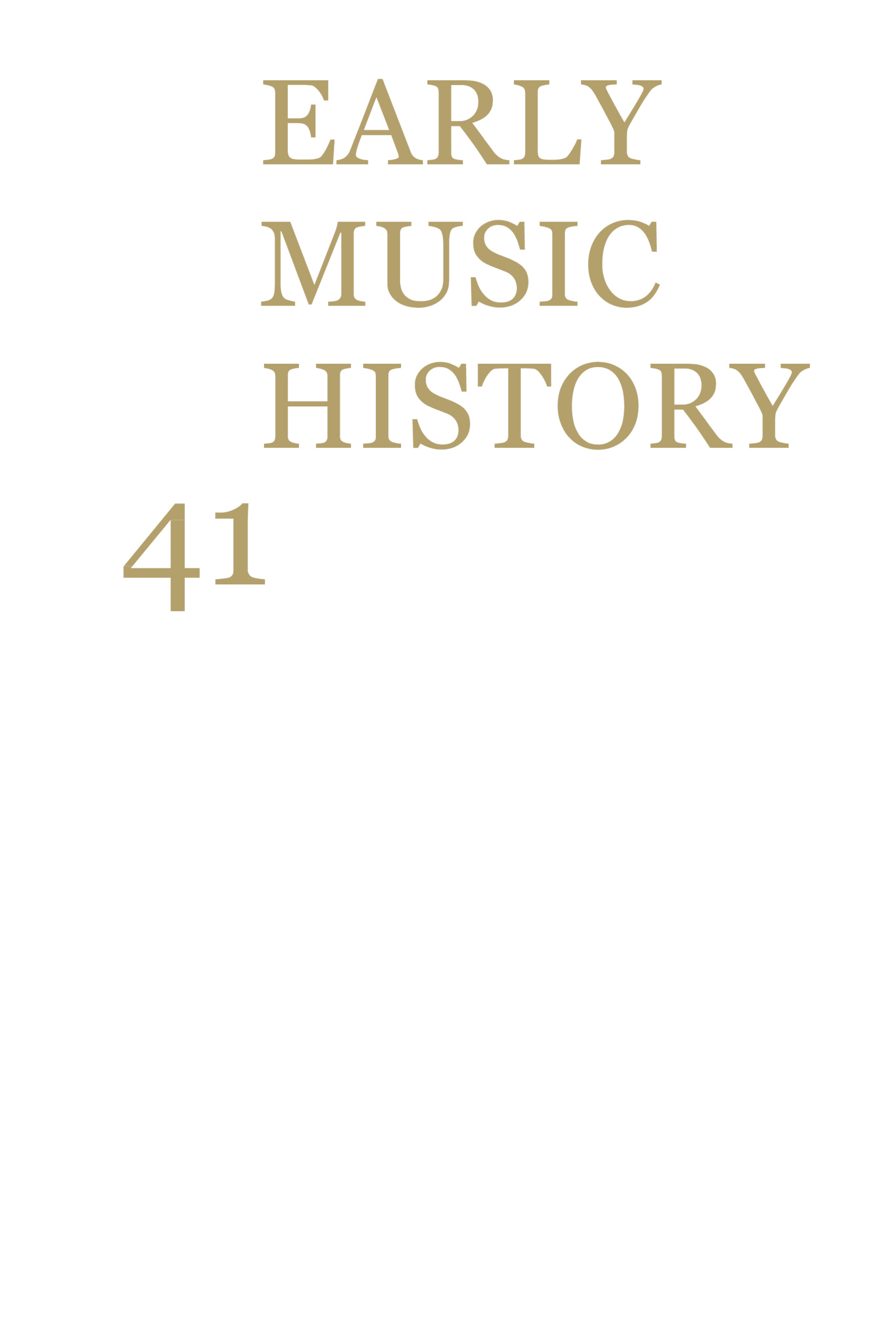Although Early Music History does not normally carry an editorial, the publication of this thirty-first volume perhaps justifies a brief historical reflection. It was during the Medieval and Renaissance Conference, held in King's College, Cambridge, in the summer of 1979, that a small group of colleagues began to explore the possibility of launching a new yearbook. Prominent among them were Lewis Lockwood and the late Thomas Walker, whose characteristic enthusiasm for new initiatives which would blow away the cobwebs provided an important stimulus to the discussion. This, which arose in an entirely impromptu fashion, took place against a background of some frustration with the policies of the major English-language journals in the field. Encouraged by the then Music Editor at Cambridge University Press, a proposal was formulated, submitted, and accepted, and work began. An editorial board of eleven members, almost entirely made up of scholars working either in Britain or the United States, was established; this was very much a ‘working’ board, whose first task was to attract and evaluate significant contributions which met the brief of ‘giving preference to studies pursuing interdisciplinary approaches and those developing new methodological ideas’. Then, as now, its members made it their business to attend conferences (not only those devoted exclusively to musicology) to hear presentations of new research which might generate interesting material for publication. In terms of its variety of approach and breadth of chronological coverage, the first issue, which appeared in 1981, set the template for the future. This is not to say that the journal has not evolved in the course of its thirty-year history. In recent years the board itself has changed not only to plan for the future while maintaining continuity (of the original group eight together with the editor still remain), but also to facilitate our more international ambitions. In that context the present issue, which contains the work of authors one of whom is Canadian, one American, one British, and five Italian, is gratifyingly illustrative. None of this would have been possible without the support that we have received not only from many colleagues but above all from the Press. As Early Music History enters its fourth decade, it seems an appropriate moment to express that gratitude in print.
No CrossRef data available.


